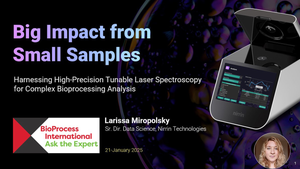
Biocon has acquired an R&D plant in Chennai from Pfizer healthcare India and plans to set up the 60,000 square-foot space to support its 28 molecule-strong biosimilar pipeline.
Financial details of the acquisition have not been divulged, but a spokesperson from Indian drugmaker Biocon told this publication it has “acquired R&D capital assets from Pfizer healthcare India Ltd.”
Specifically, this is a 60,000 square-foot facility at the TICEL Bio Park in Chennai, India, which will be established as a “bench to pilot scale integrated research and development facility” equipped with drug substance process development up to the 400 L scale bioreactors along with cell line development, drug product formulation and analytical capabilities.

Image: iStock/ruzanna
The facility will also house 250 scientists, though we were told no staff will be hired leading to the conclusion that the current Pfizer workforce has been transferred over to Biocon.
Biosimilar pipeline
While Biocon has dabbled in developing novel biologics, it now calls itself “the only fully integrated pure play biosimilars organization in the world,” and the new R&D facility will supplement the firm’s 200,000 square-foot R&D Centre at Biocon Park, Bengaluru, to extend its biosimilar ambition.
The company has seen regulatory success in Europe and the US through its partnership with Mylan, including receiving the first US Food and Drug Administration (FDA) approval in June 2018 for a biosimilar of Amgen’s cancer drug Neulasta (pegfilgrastim) in the form of Fulphila.
But according to the company, Biocon has 28 biosimilars in its pipeline, which would make it, in our count, the largest biosimilar development firm in the world.
This includes 11 with Mylan in a partnership first inked in 2009: Trastuzumab, pegfilgrastim, bevacizumab, filgrastim, pertuzumab, adalimumab, etanercept, and four insulin biosimilars – insulin glargine, insulin aspart, insulin lispro, recombinant human insulin.
Meanwhile, Biocon has a second partnership in place with Novartis subsidiary Sandoz. The deal, forged in 2018, will see Biocon develop, manufacture and commercialize next-wave biosimilars in immunology and oncology.
The number of molecules to be developed in this partnership has not been disclosed, and – when asked – nor have any other products in Biocon’s pipeline, leaving investors and journalists alike at a loss as to which 17 other biological products Biocon is aiming to compete against.
About the Author
You May Also Like

schedl_b_and_w.jpg?width=100&auto=webp&quality=80&disable=upscale)
schedl_b_and_w.jpg?width=400&auto=webp&quality=80&disable=upscale)





